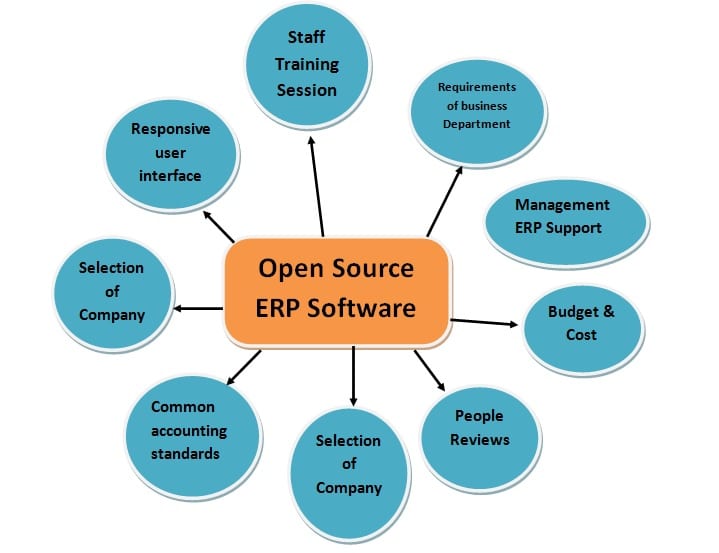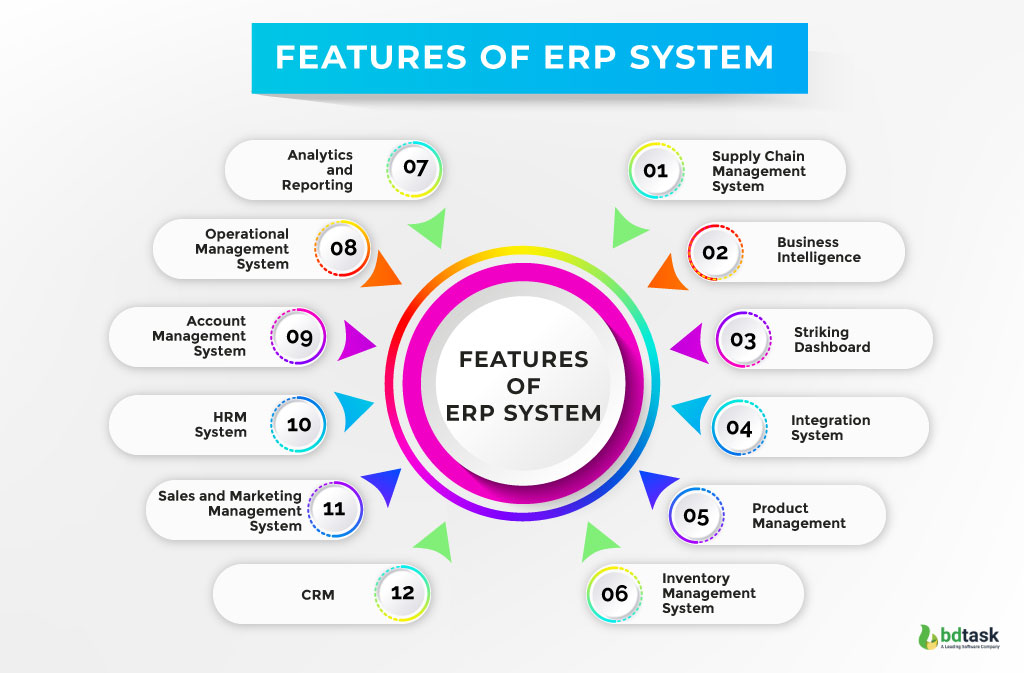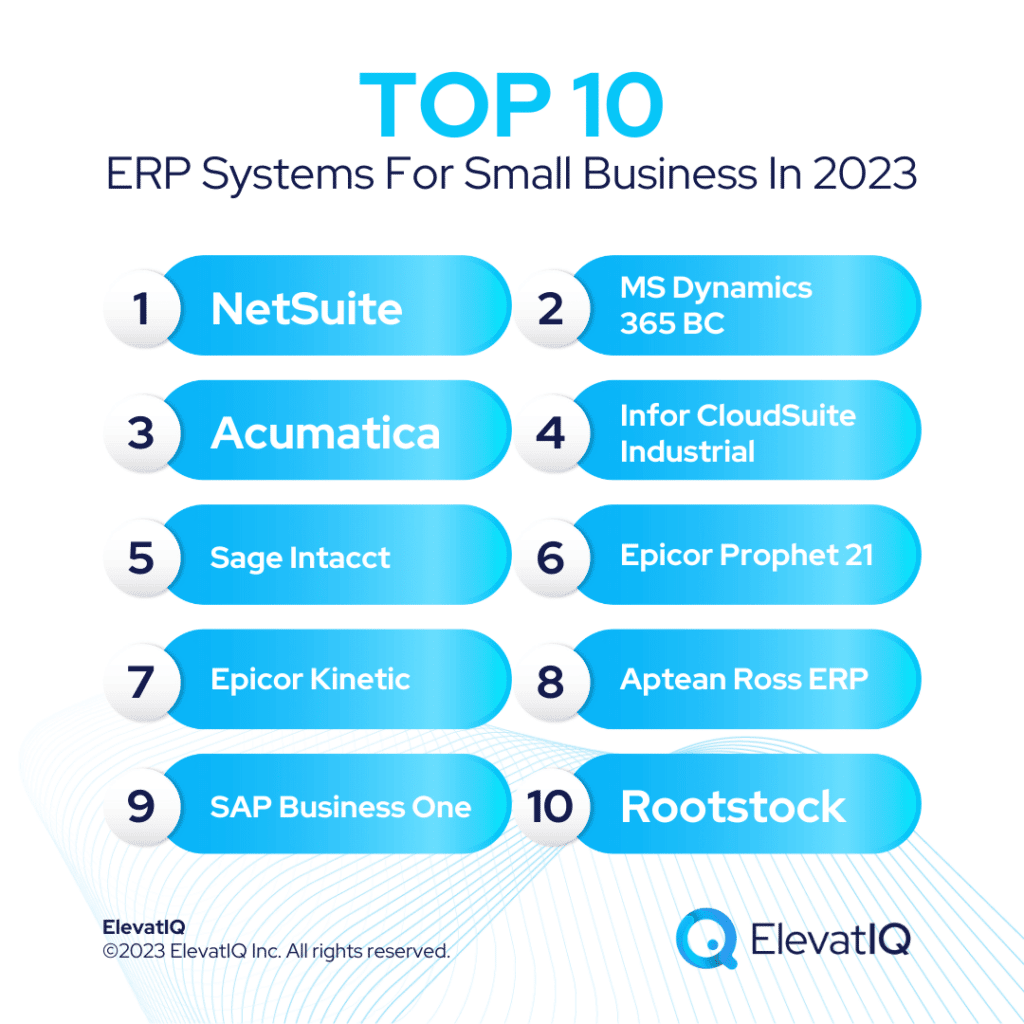The Best ERP for Your Small Business: A Simple Guide
Choosing the right Enterprise Resource Planning (ERP) software can feel like navigating a maze. But don’t worry, it doesn’t have to be a headache! This guide will walk you through the process, helping you find the perfect ERP solution to streamline your small business and boost your bottom line. We’ll break it down into easy-to-understand chunks, focusing on what matters most to you.
Understanding Your Needs: Keywords: small business ERP needs, ERP requirements checklist, choosing the right ERP, ERP features for small businesses
Before diving into specific software, let’s clarify what you need from an ERP. Think about your business’s unique challenges. Are you struggling with inventory management? Is your accounting a mess? Do you need better customer relationship management (CRM)? Identifying these pain points will guide your search.
Here’s a simple checklist to get you started:
| Feature | Importance (High/Medium/Low) | Notes |
|---|---|---|
| Inventory Management | Do you need tracking, forecasting, etc.? | |
| Accounting | What level of detail do you require? | |
| CRM | How important are customer interactions? | |
| Reporting | What kind of data analysis do you need? | |
| Scalability | How much growth are you anticipating? | |
| Integration | Do you need connections to other tools? |
Once you’ve assessed your needs, you can start looking at specific ERP solutions. Remember, the "best" ERP is the one that best fits your business.
Top ERP contenders for small businesses: Keywords: best ERP software for small business, top-rated ERP systems, affordable ERP solutions, cloud-based ERP for small business
The market offers various ERP solutions catering to small businesses. While a comprehensive comparison would be extensive, let’s highlight a few popular and user-friendly options:
- Zoho CRM: Excellent for businesses that prioritize customer relationship management. It offers a scalable and affordable solution with strong CRM features integrated with other business functions.
- Xero: A popular choice for accounting-focused businesses. It’s intuitive, offers robust financial management tools, and integrates well with other apps.
- QuickBooks Online: Another strong accounting-focused option, QuickBooks Online provides a user-friendly interface and a range of features suitable for small businesses. Its extensive app ecosystem allows for easy integration with other business tools.
- SAP Business One: While SAP is known for enterprise-level solutions, Business One offers a scaled-down version specifically designed for small and medium-sized businesses. It’s a robust system but might have a steeper learning curve than other options.
Here’s a comparison table to help you visualize the key differences:
| ERP System | Best For | Strengths | Weaknesses | Pricing Model |
|---|---|---|---|---|
| Zoho CRM | CRM-focused businesses | Affordable, scalable, strong CRM features | Might lack advanced accounting capabilities | Subscription-based |
| Xero | Accounting-focused businesses | User-friendly, robust financial management | Limited inventory management features | Subscription-based |
| QuickBooks Online | Accounting-focused businesses | User-friendly, extensive app ecosystem | Can become expensive with many add-ons | Subscription-based |
| SAP Business One | Growing businesses | Robust, scalable, comprehensive features | Steeper learning curve, higher initial cost | Subscription-based |
Choosing the Right ERP: Keywords: ERP implementation, ERP selection criteria, ERP vendor selection, ERP cost comparison
Once you’ve narrowed down your choices, consider these factors:
- Ease of Use: Choose an ERP that’s intuitive and easy for your team to learn. Avoid systems with overly complex interfaces.
- Cost: ERP solutions range in price. Consider your budget and choose a system that offers value for money.
- Scalability: Select an ERP that can grow with your business. You don’t want to outgrow your system quickly.
- Integration: Ensure the ERP integrates seamlessly with other tools you use, such as your payment gateway or e-commerce platform.
- Customer Support: Reliable customer support is crucial. Choose a provider with responsive and helpful support channels.
Implementation and Training: Keywords: ERP training, ERP implementation services, ERP support, ERP onboarding
Implementing an ERP is more than just installing software. It involves data migration, user training, and ongoing support. Plan for these aspects carefully. Many vendors offer implementation services to help you get started smoothly. Invest in adequate training for your team to ensure they can effectively use the new system.
Ongoing Maintenance and Support: Keywords: ERP maintenance, ERP upgrades, ERP system support, ERP help desk
Remember that an ERP system is a long-term investment. Factor in ongoing maintenance costs, including software updates and technical support. Choose a vendor that offers reliable support and regular updates to keep your system secure and efficient.
Case Studies: Keywords: ERP success stories, small business ERP case studies, ERP implementation case studies
Let’s look at a couple of hypothetical examples to illustrate the benefits of ERP implementation:
- Example 1: The Bakery: A small bakery struggling with inventory management and order tracking implemented a cloud-based ERP. This streamlined their operations, reduced waste, and improved customer service. They could now accurately track ingredients, forecast demand, and manage orders more efficiently.
- Example 2: The Boutique: A clothing boutique using spreadsheets for accounting and customer data experienced significant improvements after switching to an ERP with integrated CRM. The ERP automated many tasks, provided better insights into sales trends, and facilitated more personalized customer interactions.
Conclusion: Keywords: best ERP for small businesses 2024, top ERP software for small business, choosing the right ERP system
Selecting the right ERP for your small business is a significant decision, but with careful planning and consideration of your needs, it can be a game-changer. By focusing on ease of use, cost-effectiveness, scalability, integration capabilities, and robust customer support, you can find the perfect system to streamline your operations and drive growth. Remember, the "best" ERP is the one that best fits your specific business requirements.
FAQ:
- Q: How much does ERP software cost?
- A: The cost varies greatly depending on the vendor, features, and number of users. Expect to pay a monthly or annual subscription fee. Some vendors offer tiered pricing plans.
- Q: How long does it take to implement an ERP?
- A: Implementation timelines vary depending on the complexity of the system and the size of your business. It can range from a few weeks to several months.
- Q: What if my business needs change in the future?
- A: Choose an ERP system that’s scalable and flexible. Many vendors offer options to upgrade your system as your business grows.
- Q: What about data security?
- A: Reputable ERP vendors prioritize data security. Look for systems with robust security features and compliance certifications.
- Q: Can I try an ERP before committing?
- A: Many vendors offer free trials or demos. This allows you to test the software and see if it meets your needs before making a purchase.
This guide provides a starting point for your ERP journey. Remember to thoroughly research and compare different options before making a decision. Good luck!



